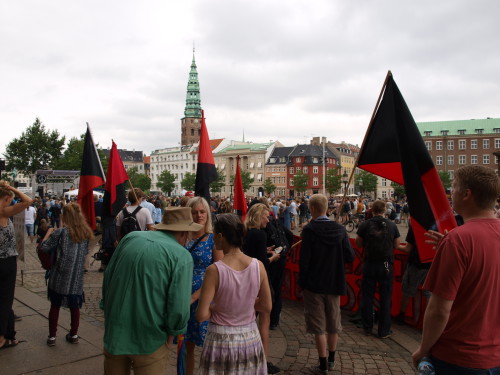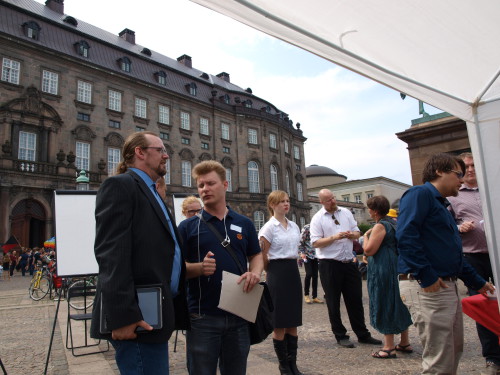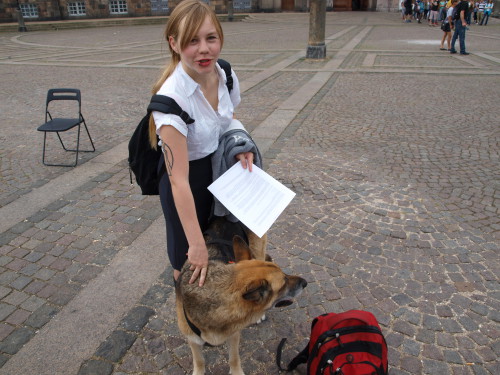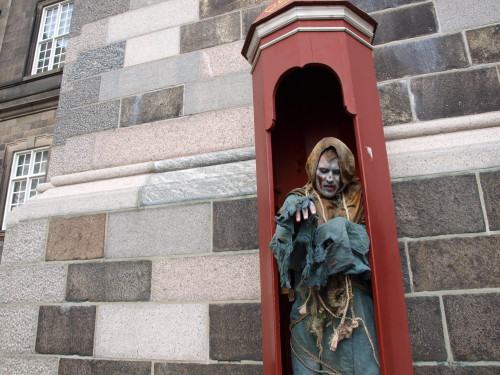
Some people do larps in highly controlled environments such as the “Black Box”, a featureless room with lights that can act as the abstract stage for any larp scene. In these games, the players can enjoy freedom from the distractions of the world and the organizers have maximum control over what happens in the game space.
Last Saturday, we did the fifth game in this summer’s Baltic Warriors series of eco larps in Copenhagen in conditions that are pretty much the opposite of that. Our game was held at the square in front of Denmark’s parliament building Christiansborg. Sharing the square with us was a demonstration against the war in Iraq, and a counter-demonstration that was also against the war but with a different political analysis.
In the photo above, you can see the anarchist counter-demonstrators.

As in every Baltic Warriors game, the characters were lobbyists, activists and politicians debating an issue related to the dead zones in the Baltic Sea caused by eutrophication. Every game has been about politics, but this time the politics was a little more tangible than usual, given the non-fictional political action going on all around us.
In each Baltic Warriors game, we have a local producer or producers helping us make the game. This time, we worked with the Danish company Rollespilsakademiet, and they had the necessary logistical resources to build us the tents, the benches and the tables that defined our play area.

As an organizer, doing a larp in this kind of environment means that you have to make peace with the fact that anything can happen. We had wildly different estimates about the size of the demonstrations. Some said there’s be thousands of people, while others had lower numbers. We were afraid that a big demonstration would swamp us, and if a demonstration went bad, there would be further safety issues.
The way it happened, the demonstration was of a manageable size, so none of our worst-case scenarios were realized. There were no obvious cops. A lot of people stopped by to see what we were doing (or to steal our coffee). For a political game, this is of course a good thing, but it also meant that this game wasn’t about fragile intimacies.

Doing an aggressively public larp like this raises many interesting questions that can be explored further. What are the ethics of sharing a public space with another political event? Can this be used deliberately, as a central part of the larp design? What kind of new social spaces can be incorporated into a larp experience?
Our larp design was merely adapted to the venue we had, but perhaps in the future, we’ll see interesting new works that make these questions the thrust of the game.